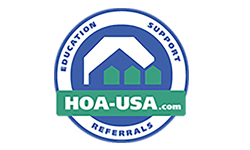Traffic enforcement issues vary widely with the size and character of the community. The magnitude of the problem is quite different for a large scale community with 9,000 residents and 73 miles of roadway compared to smaller communities. Most often the issues of traffic enforcement are related to speeding and running a stop sign. However, it may also include other violations.
If the roads in your homeowner association are public roads, contact your local law enforcement agency to assist with enforcement. Usually the traffic division is willing to assist. A traffic ticket by a law enforcement officer means court costs, legal fees, fine, points, and possible increase in insurance premiums.
If the roads in your homeowner association are private roads, law enforcement is often limited in its jurisdiction to enforce speeding limits. However, there are several measures the association can implement.
The association board should treat traffic violations as any other covenant violation which means the offender is not being accused of violating state or city laws but of violating the governing documents of the association. Begin by adopting a resolution or rule regarding traffic enforcement that includes a fine. Then initiate a procedure for notice, hearing, and fines. The maximum fine that an association can apply may be limited. For example in North Carolina, the General Statutes (NCGS 47F and 47C) limit maximum fines to $100 per offense. Associations should begin by educating homeowners regarding the safety issues and the rules. Use the website, newsletter, email, flyers, or letters.
Consider posting speed limit signs, but check with your traffic engineering department regarding sign standards. Sometimes local law enforcement will want to assist an association, but is prevented from doing so because the signs are not standard.
Speed bumps and rumble strips are usually unpopular but still used on public roads in many municipalities. Be sure to obtain written permission from your local governing agency as there are often engineering considerations. Poorly designed speed bumps create response time and safety issues for fire trucks and EMT vehicles. Other objections include vehicle wear and tear, complications with snow removal, and increased air pollution and emissions. Check the engineering or public safety departments when considering this alternative. Paint striping or ‘slow down’ traffic cones are cost effective means of improving driving behavior.
Some associations that have adopted rules treating traffic violations as covenant violations have included a provision for using traffic patrols of two or more residents to observe and record violations. Resident patrols should carefully evaluate the risks and legal implications, especially related to using radar guns and digital cameras for recording license plate info. A better alternative may be to contract with a licensed private security firm to observe and report violations. While this measure may seem expensive, the first example usually communicates to the habitual and reckless offenders that the association means business.
Some associations with deep pockets have installed permanent radar signs and cameras. Portable radar trailers can result in 80% voluntary compliance, but habitual speeding behavior is generally only remedied through enforcement and fines. Less expensive portable devices such as the SpeedMinder™ record data including traffic count, average speed, number of violations and highest speed. This is valuable information for informing local police, getting support for more speed deterrents from the city or helping the Board make informed decisions.
Associations should also be aware of the limitations associated with obtaining driver information using license plate info. The Drivers Privacy Protection Act (DPPA), Public Law No. 103-322 codified as amended by Public Law 106-69, was originally enacted in 1994 to protect the privacy of personal information assembled by the State Department of Motor Vehicles (DMV). The DPPA prohibits the release or use by any State DMV (or any officer, employee, or contractor thereof) of personal information about an individual obtained by the department in connection with a motor vehicle record. It sets penalties for violations and makes violators liable on a civil action to the individual to whom the released information pertains. The DPPA, like many other privacy statutes, provides a federal baseline of protections for individuals. The DPPA is only partially preemptive, meaning that except in a few narrow circumstances, state legislatures may pass laws to supplement the protections made by the DPPA. States were required to comply with the minimum requirements of the DPPA by September 1997. Many states are more restrictive than the federal rules. Certain states, such as Arkansas and Wyoming, only release personal information to the licensee; a person who has written permission from a licensee; or a traffic court, law enforcement, or governmental agency who has a need for such information to perform their required duties. States differ as to whether the DPPA applies to records of vehicles owned by corporations, proprietorships, partnerships, limited liability partnerships, associations, estates, lien holders, or trusts.
Some local governments have jurisdiction agreements that associations can approve allowing traffic enforcement on private roads. Law enforcement agencies have policies that vary widely in the extent to which they can assist. Some may provide a police car presence even if they do not have authority to enforce. Many will support the argument that jurisdiction limits do not apply in the case of careless and reckless or driving while impaired behavior. Consult with your local law enforcement agencies.
The question has been raised about whether or not gated communities can restrict gate access for proven offenders. One community with multiple gates inconveniences violators by restricting card access at the main entrance and forcing use of a back gate entrance. The association should consult with their attorney before adopting this approach.

